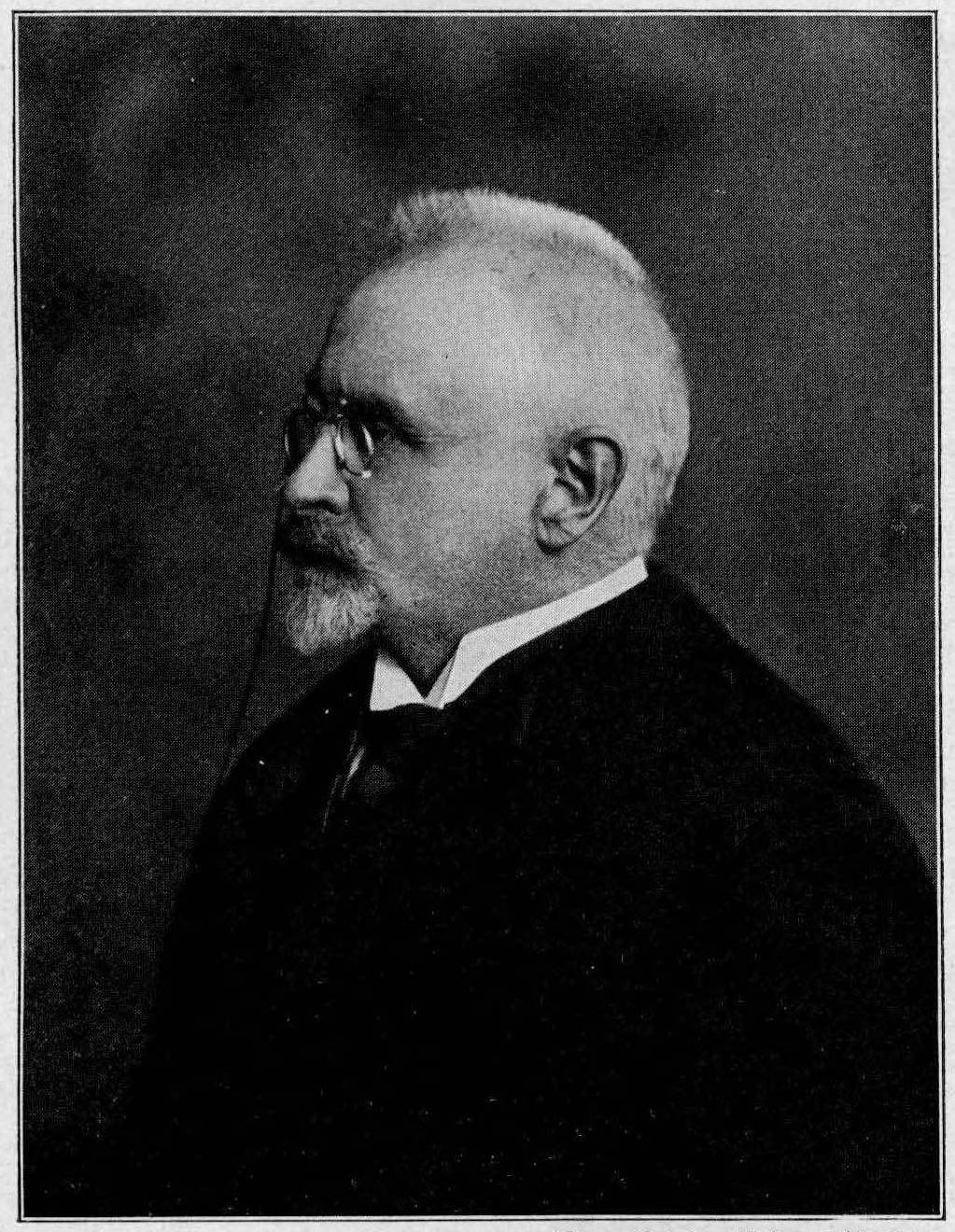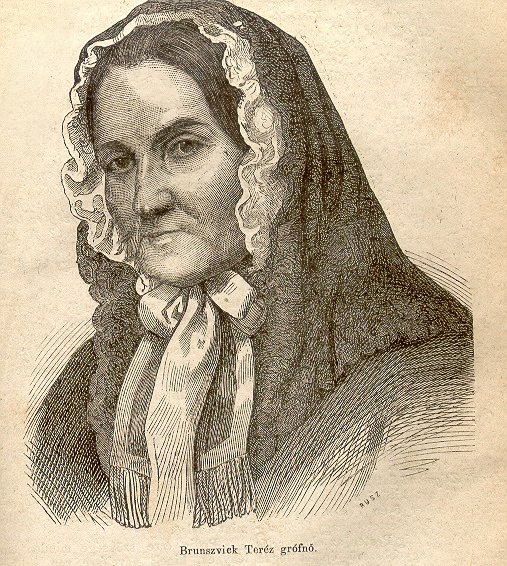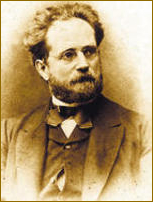|
Amalie Sebald
Amalie Sebald (24 August 1787 – 4 January 1846) was a German singer and was considered at the beginning of the 20th century to be Beethoven's " Immortal Beloved". Life Born in Berlin, Sebald was a daughter of the alto von Sebald, ''née'' Schwadke, and of the Justice Council Karl Christian August Sebald. Like her sister Auguste, who later married the Protestant priest Carl Ritschl, she was a soprano. In the records of the Singakademie her mother is recorded for the year 1791, her daughters for 1801 and 1802 respectively; the three ladies appeared as soloists for the first time in 1794 and 1803 and 1804 respectively. Beethoven met Sebald in the summer of 1811 in the spa resort Teplitz; she had arrived together with the countess Elisa von der Recke. At that time, the heart of the composer was won, who met her again in Teplice in 1812. Sebald later, on 17 October 1815, married the Berlin Justice Councillor Ludwig Krause (around 1781–1825), whom she survived. while Beethoven r ... [...More Info...] [...Related Items...] OR: [Wikipedia] [Google] [Baidu] |
Dora Stock Amalie Seebald Ausschnitt
Dora may stand for: *Dora (given name) Places United States * Dora, Alabama *Dora, Arkansas *Dora, Missouri * Dora, New Mexico * Dora, Oregon *Dora, Pennsylvania *Mount Dora, Florida Other countries *Lake Dora (Tasmania) * Lake Dora (Western Australia) * Dora, Baghdad, Iraq * Dora, Cyprus *Dora, Lebanon * Dura, Hebron, in the Israeli West Bank * Dorasan or Mount Dora, a hill in South Korea *Dora Beel, a lake in Assam (India) * Dora Baltea river and Dora Riparia river, northern Italy Entertainment * '' Dora the Explorer'', American children's television program * '' Dora and the Lost City of Gold'', a 2019 live-action movie loosely based on the TV program * ''Dora'' (TV series), a 1973 British sitcom series * ''Dora'' (1933 film), a British comedy film * ''Dora'' (2017 film), a Tamil language horror thriller movie * Dora Mavor Moore Award for Canadian professional theatre * "Dora", 1984 song by Ambitious Lovers from the album '' Envy'' * Dora, a designated bonus tile use ... [...More Info...] [...Related Items...] OR: [Wikipedia] [Google] [Baidu] |
Teplice
Teplice () (until 1948 Teplice-Šanov; german: Teplitz-Schönau or ''Teplitz'') is a city in the Ústí nad Labem Region of the Czech Republic. It has about 49,000 inhabitants. It is the second largest Czech spa town, after Karlovy Vary. The historic city centre is well preserved and is protected by law as an urban monument zone. Administrative parts The municipal area comprises the administrative parts of Teplice proper, Hudcov, Nová Ves, Prosetice, Řetenice, Sobědruhy and Trnovany. Etymology The name ''Teplice'' is an Old Czech word, meaning "hot spring". Geography Teplice is located about west of Ústí nad Labem and northwest of Prague. The northern part of the municipal territory lies in the Most Basin, the southern part lies in the Central Bohemian Uplands. The highest point is the hill Doubravská hora with an elevation of . There are several small fish ponds in the territory. History According to the 1541 ''Annales Bohemorum'' by chronicler Wenceslaus Hajek, th ... [...More Info...] [...Related Items...] OR: [Wikipedia] [Google] [Baidu] |
1787 Births
Events January–March * January 9 – The North Carolina General Assembly authorizes nine commissioners to purchase of land for the seat of Chatham County. The town is named Pittsborough (later shortened to Pittsboro), for William Pitt the Younger. * January 11 – William Herschel discovers Titania and Oberon, two moons of Uranus. * January 19 – Mozart's '' Symphony No. 38'' is premièred in Prague. * February 2 – Arthur St. Clair of Pennsylvania is chosen as the new President of the Congress of the Confederation.''Harper's Encyclopaedia of United States History from 458 A. D. to 1909'', ed. by Benson John Lossing and, Woodrow Wilson (Harper & Brothers, 1910) p167 * February 4 – Shays' Rebellion in Massachusetts fails. * February 21 – The Confederation Congress sends word to the 13 states that a convention will be held in Philadelphia on May 14 to revise the Articles of Confederation. * February 28 – A charter is gra ... [...More Info...] [...Related Items...] OR: [Wikipedia] [Google] [Baidu] |
19th-century German Women Singers
The 19th (nineteenth) century began on 1 January 1801 ( MDCCCI), and ended on 31 December 1900 ( MCM). The 19th century was the ninth century of the 2nd millennium. The 19th century was characterized by vast social upheaval. Slavery was abolished in much of Europe and the Americas. The First Industrial Revolution, though it began in the late 18th century, expanding beyond its British homeland for the first time during this century, particularly remaking the economies and societies of the Low Countries, the Rhineland, Northern Italy, and the Northeastern United States. A few decades later, the Second Industrial Revolution led to ever more massive urbanization and much higher levels of productivity, profit, and prosperity, a pattern that continued into the 20th century. The Islamic gunpowder empires fell into decline and European imperialism brought much of South Asia, Southeast Asia, and almost all of Africa under colonial rule. It was also marked by the collapse of the la ... [...More Info...] [...Related Items...] OR: [Wikipedia] [Google] [Baidu] |
Ludwig Van Beethoven
Ludwig van Beethoven (baptised 17 December 177026 March 1827) was a German composer and pianist. Beethoven remains one of the most admired composers in the history of Western music; his works rank amongst the most performed of the classical music repertoire and span the transition from the Classical period to the Romantic era in classical music. His career has conventionally been divided into early, middle, and late periods. His early period, during which he forged his craft, is typically considered to have lasted until 1802. From 1802 to around 1812, his middle period showed an individual development from the styles of Joseph Haydn and Wolfgang Amadeus Mozart, and is sometimes characterized as heroic. During this time, he began to grow increasingly deaf. In his late period, from 1812 to 1827, he extended his innovations in musical form and expression. Beethoven was born in Bonn. His musical talent was obvious at an early age. He was initially harshly and intensively tau ... [...More Info...] [...Related Items...] OR: [Wikipedia] [Google] [Baidu] |
Rainer Cadenbach
Rainer Cadenbach (1 July 1944 – 22 May 2008) was a German musicologist and University professor. Life Born in near Kassel, Cadenbach studierte German (with Benno von Wiese and Rudolf Schützeichel), philosophy (with Hans Wagner and Hariolf Oberer) as well as musicology (with Emil Platen and Günther Massenkeil at the Rheinische Friedrich-Wilhelms-Universität Bonn. In 1970 he passed his Staatsexamen and in 1977 he was awarded a doctorate with the work ''Das musikalische Kunstwerk''. He then worked as a research assistant at the Department of Philosophy and later at the Department of Musicology of the Bonn University. In the 1970s and 80s he conducted the university orchestra ''Camerata musicale'' (today Uniorchester Bonn - Camerata musicale). In 1985 he won his habilitation with a thesis about ''Max Regers sketches and drafts'' and became Privatdozent. From 1987 to 1989 he was a substitute professor for musicology at the Hochschule der Künste in Berlin (since 2001 Universi ... [...More Info...] [...Related Items...] OR: [Wikipedia] [Google] [Baidu] |
Klaus Martin Kopitz
Klaus Martin Kopitz (born January 29, 1955, Stendal) is a German composer and musicologist. He became known in particular with his album ''Mia Brentano's Hidden Sea. 20 songs for 2 pianos''. In the US, it was 2018 on the annual "Want List" of the music magazine ''Fanfare''. Life Kopitz studied at the Hochschule für Musik "Hanns Eisler" (1975–1980) and at the Academy of Arts, Berlin (1985–1987), where he was a pupil of Georg Katzer. Later he worked at the theatre in Neustrelitz, at the Berlin University of the Arts (since 2002) and at the Saxon Academy of Sciences in Leipzig (since 2012). Music His compositions are inspired from Classical music, Jazz, Pop and Minimal music, but can not be assigned to any specific style. In particular, his CD ''Mia Brentano's Hidden Sea'' was highly praised by the critics. For Dave Saemann it is "the most titillating CD I've come across in a long time". Huntley Dent calls it "unique among current and past releases". Oliver Buslau stated: " ... [...More Info...] [...Related Items...] OR: [Wikipedia] [Google] [Baidu] |
Adolf Sandberger
Adolf Wilhelm August Sandberger (19 December 1864 in Würzburg – 14 January 1943 in Munich) was a German musicologist and composer, with a particular interest in 16th-century music. He founded the School of Musicology at the University of Munich, where he worked as a professor of musicology from 1904 to his retirement in 1930. In addition to his academic work, Sandberger composed two operas, several choruses and some chamber and instrumental music. His Violin Sonata, Op, 10 (1892) was dedicated to Benno Walter. He was the son of Karl Ludwig Fridolin von Sandberger. References External links * 1864 births 1943 deaths German musicologists German composers Beethoven scholars Musicians from Würzburg {{Germany-musicologist-stub ... [...More Info...] [...Related Items...] OR: [Wikipedia] [Google] [Baidu] |
Arnold Schering
Arnold Schering (2 April 1877 in Breslau, German Empire – 7 March 1941 in Berlin) was a German musicologist. He grew up in Dresden as the son of an art publisher. He learned violin at the from which he graduated in 1896. Thereafter he studied violin at the Berlin School of Music under Joseph Joachim. From 1898 until 1902 he studied music in Berlin and Leipzig and wrote his dissertation on the instrumental concertos of Antonio Vivaldi (in German, ''Geschichte des Instrumentalkonzertes bei Antonio Vivaldi'') and this work was influential in resurrecting the music of this composer. Fred K. Prieberg: ''Handbuch Deutsche Musiker 1933–1945'', CD-Rom-Lexikon, Kiel 2004, pages 6.084–6.086. In 1907 he made his habilitation and was made a professor of music in 1915. In 1920 Schering gathered evidence that composer Johann Sebastian Bach usually used 12 singers in his cantatas and other vocal works. This insight eventually became influential in the early music movement. From 1928 onward ... [...More Info...] [...Related Items...] OR: [Wikipedia] [Google] [Baidu] |
Teréz Brunszvik
Countess Therese [von] Brunsvik (in Hungarian Teréz Brunszvik, sometimes referred to in English as Therese Countess von Brunsvik or Brunswick) (July 27, 1775, Pozsony, Kingdom of Hungary – September 23, 1861, Pest, Hungary, Pest, Kingdom of Hungary) was a member of the Hungarian nobility, pedagogy, pedagoge and a follower of the Swiss Johann Heinrich Pestalozzi, Pestalozzi. Her father was the Hungarian count Antal Brunszvik and her mother was the baroness Anna Seeberg; her siblings were Franz, Josephine Brunsvik, Josephine, and Charlotte. She was the founder of nursery schools in Hungary on July 1, 1828, after Robert Owen's example set in New Lanark, Scotland in 1816. Soon the pre-school institution became famous all over Hungary and in 1837, Friedrich Fröbel founded the first "kindergarten" in Germany. One of Ludwig van Beethoven's students, Therese was the dedicatee for his Piano Sonata No. 24 (Beethoven), Piano Sonata No. 24 (in F major, Opus 78), and some writers specula ... [...More Info...] [...Related Items...] OR: [Wikipedia] [Google] [Baidu] |
Ludwig Nohl
Ludwig Nohl (born 5 December 1831 in Iserlohn; died 15 December 1885 in Heidelberg) was a German music scholar and writer best known for discovering and publishing Beethoven's famous bagatelle, "Für Elise". Life After graduation from the Gymnasium in Duisburg, Nohl studied jurisprudence at the universities in Bonn, Heidelberg, and Berlin, where he received instruction in music from Siegfried Dehn and Friedrich Kiel. From 1853 to 1856 he was a referendary and undertook journeys to France and Italy, and he also taught music in Heidelberg. In 1860 he wrote his thesis on Mozart and earned the rank of privatdozent for "History and Aesthetic of Musical Art." In 1864 he moved to Munich and made an introduction to Richard Wagner, whose works he had praised in his writings. In 1865 he was awarded by King Ludwig II the title of Professor of Music at the University of Munich for his compilation of Mozart's letters. The university faculty, however, was disinclined to Nohl, and he was not ... [...More Info...] [...Related Items...] OR: [Wikipedia] [Google] [Baidu] |
Wolfgang Alexander Thomas-San-Galli
Wolfgang Alexander Thomas-San-Galli (real name ''Wolfgang Alexander Thomas''; 18 September 1874 – 17 June 1918) was a German musicologist, music critic, violist and music writer. Leben Thomas-San-Galli was born in Badenweiler the eldest son of doctor Hermann Julius Thomas and his wife Jacobine ''née'' Simons. In 1898 he received his doctorate in law from the University of Freiburg and married the concert pianist and accompanist Helene ''née'' Bertoldy (1861–1938) from Saint Petersburg. He had already enjoyed violin lessons as a child and studied violin and viola with a pupil of Hans Sitt. From 1899 to 1903 he headed the Hochschule für Musik Freiburg and founded the ''Süddeutsche Streichquartett'' there, to which he belonged as a violist until 1908. That same year, he moved to Cologne, where he became editor and writer of the ''Rheinische Musik- und Theaterzeitung''. Thomas-San-Galli took part in the First World War as a soldier. He died in 1918 in Baden-Baden at the age o ... [...More Info...] [...Related Items...] OR: [Wikipedia] [Google] [Baidu] |
_Kašna_se_sochou_Madony_(Teplice)_3.jpg)






